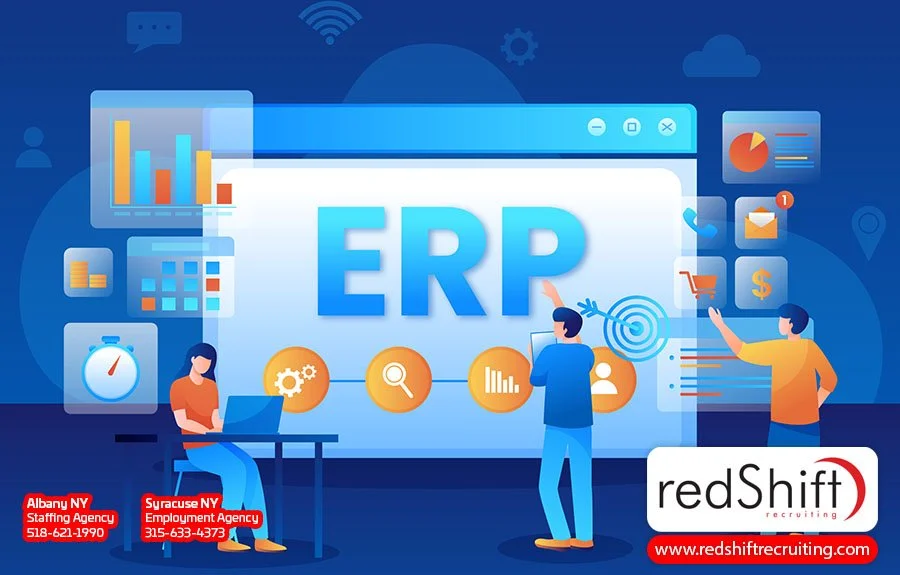Healthcare ERP Implementations Made Simple: 15 FAQs to Help You Get Started

Table of Contents
How Do I Choose the Right Healthcare ERP System?
Should We Choose a Cloud-Based or On-Premises ERP Solution for Healthcare?
What Are the Steps Involved in a Healthcare ERP Implementation?
How Long Does It Usually Take to Implement an ERP System in a Healthcare Setting?
What Are Common Challenges Faced During ERP Implementations, and How Can They Be Overcome?
What Role Does Data Migration Play in ERP Implementation, and How Can We Ensure Its Accuracy?
Should We Hire More IT Staff or Use Contract IT Talent for an ERP Implementation?
How Can I Find Qualified IT Consultants for My ERP Project?
What Ongoing Maintenance and Support Requirements Should We Plan for After ERP Implementation?
Are There Any Hidden Costs or Risks in Healthcare ERP Implementations We Should Be Aware Of?
How Can I Measure the Success or ROI of My ERP Implementation?
How Can We Ensure Data Security and Compliance During and After ERP Implementation?
What Is a Healthcare ERP System, and How Does It Differ From Other Healthcare Software Like EHRs?
What Are the Key Benefits of Implementing an ERP System in a Healthcare Organization?
Healthcare organizations today face increasing pressure to operate more efficiently while maintaining compliance with complex regulations and delivering exceptional patient care. In this high-stakes environment, implementing an Enterprise Resource Planning (ERP) system can be a game-changer. By streamlining administrative processes, improving resource allocation, and integrating critical systems like EHRs (Electronic Health Records), healthcare ERP solutions help healthcare providers address their most pressing operational challenges.
However, healthcare ERP implementation is no small feat. It’s a complex process involving numerous decisions about technology, data, staffing, and change management. To help healthcare leaders navigate this journey, we’ve created this FAQ guide to address the most common questions and concerns. Whether you’re just starting to explore ERP solutions for healthcare organizations or preparing for implementation, this resource will provide the answers you need to move forward with confidence.
What Are ERP Implementations in the Healthcare Industry?
ERP implementations in the healthcare sector involve the adoption of a unified software platform designed to integrate and streamline core business operations like finance, human resources, supply chain management, and clinical workflows. Unlike standalone systems that manage only one aspect of operations, ERP systems centralize data, enabling seamless communication and coordination across departments. ERP systems also enhance financial management, allowing organizations to gain better control over budgets, expenses, and revenue tracking.
For healthcare organizations, this integration is particularly valuable because it supports both administrative and clinical efficiency in healthcare processes. For instance, while an ERP might track staffing and inventory needs (such as medical supplies), it can also provide real-time insights that inform patient management decisions. This dual functionality makes ERP implementations a cornerstone of modern healthcare management.
Why Do ERP Implementations Matter for Healthcare Organizations?
Healthcare organizations operate in an increasingly complex environment, balancing patient care with regulatory compliance, resource management, and financial sustainability. Healthcare ERP software addresses these challenges by creating a single, integrated platform that connects all aspects of healthcare business operations.
In a field where efficiency and compliance directly impact lives, ERP implementations are not just beneficial but essential. For example, a robust inventory management system ensures that critical supplies are always available and waste is minimized, while a patient portal can improve patient engagement by offering easy access to medical records, appointment scheduling, and communication with providers. Additionally, ERP systems support revenue cycle management by improving billing accuracy, reducing claim denials, and ensuring faster reimbursements. By improving resource allocation, ERPs also help reduce operational inefficiencies like delayed procurement of medical supplies or scheduling gaps, while their ability to centralize and analyze data supports better decision-making, from enhanced financial forecasting to improved patient outcomes. By implementing the best healthcare ERP solutions, organizations can enhance efficiency and effectiveness compared to other healthcare systems.
How to Approach ERP Implementation Strategically
A healthcare ERP implementation isn’t just a technical project; it’s a strategic initiative that requires alignment across the entire organization. Before diving into the technical details of the new system, ensure that your leadership team has clearly defined the goals of the implementation. Are you aiming to reduce operational costs, improve patient scheduling, or streamline regulatory compliance? Clarifying these objectives early will guide every decision, from vendor selection to system configuration.
Equally important is fostering a culture of collaboration. ERP implementations impact multiple departments, so engaging key stakeholders, such as clinicians, administrators, and IT staff, ensures that the solution addresses real-world challenges practically. Finally, take a long-term view: consider how the ERP will evolve with your organization’s growth and invest in training and continuous improvement to maximize its value over time.

FAQs About Healthcare ERP Implementations
Implementing an ERP system can feel like a daunting task, given the numerous components involved and the high stakes for operational efficiency and patient care. The following are 15 of the most common questions about ERP implementations in the healthcare sector. Whether you're in the early stages of planning or actively working on an implementation, these answers will help you make informed decisions that align with your organization's goals.
Implementation & Planning
How Do I Choose the Right Healthcare ERP System?
Choosing the right ERP for healthcare systems starts with identifying your organization’s needs. Assess your current workflows and look for an ERP that addresses gaps, like supply chain inefficiencies or compliance tracking. Prioritize healthcare-specific features such as EHR integration, HL7 interoperability, and regulatory compliance with HIPAA and HITECH.
Evaluate vendors based on their experience in the healthcare industry, long-term support offerings, and scalability. Look for red flags such as poor customer reviews or limited customization options. Also, consider whether the vendor offers future updates and training to ensure the system is successful long-term.
Should We Choose a Cloud-Based or On-Premises ERP Solution for Healthcare?
The choice between on-premises and cloud-based ERP systems depends on your organization's goals, budget, and IT infrastructure. Cloud-based healthcare ERP solutions are cost-effective, scalable, and require less IT maintenance, making them ideal for healthcare facilities looking for flexibility and lower upfront costs. They also make system updates easier and provide enhanced remote access.
On-premises solutions, on the other hand, offer greater control over data and customization, making them well-suited for organizations with specific security requirements or complex operational needs. Before making your choice, evaluate your organization’s long-term growth potential and ensure the solution aligns with your future goals.
What Are the Steps Involved in a Healthcare ERP Implementation?
Healthcare ERP implementation involves several phases. Begin with a thorough needs assessment and vendor selection. Next, create a detailed project plan that includes timelines, risk assessments, and resource allocation. Data migration, system configuration, and testing (including unit, integration, and user acceptance testing) are crucial to ensuring system readiness.
Next, decide between a phased rollout or a "big bang" implementation. A phased approach minimizes disruptions but takes longer, while a big bang rollout enables faster adoption but involves higher risks. Finally, focus on staff training, change management, and an effective go-live strategy, followed by ongoing performance monitoring and optimization.
How Long Does It Usually Take to Implement an ERP System in a Healthcare Setting?
A typical healthcare ERP implementation can take 12 to 24 months, depending on the size and complexity of the organization. Factors such as the level of customization, the number of systems being integrated, and resource availability can impact the timeline.
Smaller organizations with straightforward needs may implement ERP systems in under a year, while larger systems with multiple locations may require additional time. Choosing cloud-based ERP solutions can also reduce implementation time. However, regardless of the type of ERP system or the size of your organization, with careful planning, clear communication, and a dedicated project team, you can streamline the process and avoid unexpected delays.
What Are Common Challenges Faced During ERP Implementations, and How Can They Be Overcome?
Common challenges you may face during an ERP implementation include resistance to change, data migration issues, and integration complexities. Staff resistance can be mitigated through clear communication about the ERP’s benefits, leadership support, and role-specific training, while data migration issues are best addressed with a detailed plan, multiple test runs, and a disaster recovery strategy to safeguard critical data. Integration with third-party tools, such as pharmacy or lab systems, requires selecting an ERP with strong interoperability features. Engaging experienced IT consultants can also help overcome these challenges.
Data and Integration
What Role Does Data Migration Play in ERP Implementation, and How Can We Ensure Its Accuracy?
Data migration is a cornerstone of enterprise resource planning (ERP) implementation, involving the transfer of critical data from legacy systems to the new platform. Accurate data migration is vital for ensuring the ERP system operates as intended and provides reliable insights. To ensure accuracy, begin with a thorough data audit to identify and clean outdated, redundant, or inconsistent information. Establish clear data mapping between the legacy system and the new ERP to prevent errors during the transfer, and conduct multiple test migrations to validate the accuracy of the data in a controlled environment before the final migration.
A disaster recovery plan is essential to protect against potential data loss or corruption during the process. Additionally, strong collaboration between IT staff and consultants ensures that all technical aspects of migration are managed effectively, while involving key stakeholders helps verify that the migrated data meets organizational needs. Be sure to regularly monitor and validate the data at each stage of the migration to ensure it remains consistent, complete, and accurate.

Resources & Staffing
Should We Hire More IT Staff or Use Contract IT Talent for an ERP Implementation?
Whether you should hire permanent or contract IT talent depends on your current team’s expertise and the scope of your ERP project. Contract IT talent offers specialized expertise for critical tasks like data migration, system configuration, and integration with other systems. These professionals bring experience from working on similar projects, allowing them to identify potential issues and implement solutions more efficiently. Contract talent can also be scaled up or down based on the project’s timeline, making it a flexible and cost-effective option for organizations that need additional support without committing to long-term hires. By hiring contract IT employees, healthcare organizations can access a diverse pool of skilled professionals who are ready to hit the ground running, reducing project delays and ensuring high-quality outcomes.
On the other hand, if you anticipate ongoing ERP needs, hiring additional permanent staff may be more practical. Permanent employees provide continuity for system updates, maintenance, and user support long after the implementation is complete. Alternately, many organizations find that a hybrid approach—using contract IT specialists during the intense implementation phase and relying on in-house staff for long-term support—offers the best balance of expertise, cost, and continuity. With this strategy, you can tap into the strengths of contract talent while building a knowledgeable team that ensures the ERP system continues to deliver value over time.
How Can I Find Qualified IT Consultants for My ERP Project?
Partnering with staffing agencies specializing in healthcare or IT staffing can significantly streamline the hiring process and help you find highly qualified IT consultants quickly. These agencies have access to extensive talent networks and pre-vetted candidates, ensuring you connect with professionals who possess the technical expertise and industry knowledge needed for your ERP project. Recruiters also handle time-consuming tasks like screening, interviewing, and checking references, freeing your internal team to focus on other priorities. Additionally, consider asking for recommendations from industry peers or professional networks.
Look for consultants with proven experience in healthcare ERP projects and strong references. During evaluations, ensure candidates have relevant certifications, regulatory knowledge, and a solid understanding of integrating ERP systems with healthcare tools like EHRs.
User Adoption & Change Management
What Strategies Can We Use to Manage Change and Ensure Successful User Adoption of the New ERP System?
Resistance to change can be a significant hurdle in ERP implementations, often stemming from uncertainty about how the new system will affect existing workflows and responsibilities. Change management starts with clear communication about the ERP system’s benefits and its impact on daily workflows. Involve stakeholders early in the process and provide ongoing opportunities for feedback to build trust and address concerns before they become barriers to user adoption.
Tailor training programs to different user roles, ensuring training is relevant to each team and emphasizing how the new system will make their jobs easier or more efficient. Leadership support is critical, as visible engagement from executives fosters confidence among staff and signals the importance of the initiative. Finally, designating superusers who can assist colleagues and act as system champions further drives adoption by creating an accessible resource for troubleshooting and encouragement.
Post-Implementation & Support
What Ongoing Maintenance and Support Requirements Should We Plan for After ERP Implementation?
Post-implementation support includes regular updates, performance monitoring, and addressing any issues that arise. Establish a dedicated support team or partner with the ERP vendor to ensure you have ongoing assistance.
Keep in mind that continuous improvement is key. Schedule periodic reviews to optimize the system based on user feedback and plan for scalability to accommodate organizational growth, ensuring the ERP evolves alongside your needs.
Are There Any Hidden Costs or Risks in Healthcare ERP Implementations We Should Be Aware Of?
Hidden costs of healthcare ERP implementations can include training, system customization, and data migration. To avoid surprises, budget for these expenses during the planning phase. Risks like delays, resistance to change, or data loss can be mitigated through proactive planning and risk assessments.
Clear contracts with vendors and regular communication with your project team also reduce the likelihood of unexpected issues. Before starting your project, it’s important to conduct a thorough assessment of potential risks to identify vulnerabilities, allocate resources effectively, and ensure your team is prepared to handle challenges as they arise.
How Can I Measure the Success or ROI of My ERP Implementation?
Success can be measured by tracking KPIs such as reduced costs, faster billing cycles, or improved resource allocation. Financial ROI can be calculated by comparing implementation costs to benefits like reduced administrative overhead or increased revenue.
Qualitative factors, like improved staff morale and streamlined workflows, also contribute to success. Conduct regular reviews post-implementation to identify areas for ongoing improvement and gather feedback from both staff and patients to assess how the system has impacted daily operations and patient care. By combining quantitative metrics with qualitative insights, you can gain a comprehensive view of the ERP system's value and ensure it continues to deliver results that meet your organizational goals.

Security & Compliance
How Can We Ensure Data Security and Compliance During and After ERP Implementation?
Ensuring data security and compliance with regulations like HIPAA requires a combination of technology and clear policies. First, choose an ERP system with built-in security features like encryption, multi-factor authentication, and audit trails. Pay special attention to security during data migration, as this is when systems are most vulnerable, and regularly update software, conduct audits, and train staff on compliance requirements. If integrating third-party systems, ensure their security standards align with those of your ERP. Finally, establish a strong incident response plan to quickly address any security breaches or compliance issues that may arise, ensuring minimal disruption to operations and patient care.
General Information
What Is a Healthcare ERP System, and How Does It Differ From Other Healthcare Software Like EHRs?
A healthcare ERP (Enterprise Resource Planning) system is a comprehensive platform that manages core business functions like finance, supply chain management, HR, and operations within healthcare facilities. Unlike EHRs (Electronic Health Records), which focus on patient data and clinical workflows, ERP systems focus on administrative and operational efficiency.
For example, an EHR tracks patient records and medical histories, while an ERP system ensures that the necessary resources, such as supplies and staff, are available for those treatments. By integrating administrative and clinical data, healthcare ERP systems bridge operational gaps, streamline workflows, and enhance organizational efficiency.
What Are the Key Benefits of Implementing an ERP System in a Healthcare Organization?
Healthcare ERP software solutions streamline processes, leading to cost savings, improved operational performance, and enhanced patient care. By centralizing data and automating tasks like inventory management and billing, ERP systems eliminate redundancies and ensure resources are effectively allocated for healthcare professionals.
Beyond efficiency, ERP systems offer actionable insights through data integration, helping administrators make informed decisions through enhanced data analytics capabilities. For example, they can reduce patient wait times by improving scheduling and increase patient satisfaction by ensuring smooth workflows that provide enhanced patient care. They also support financial performance improvements by enabling accurate forecasting and streamlined expense management.
Staffing for ERP Implementations: Finding the Right Talent
A successful ERP implementation in the healthcare system requires more than just the right software. It depends heavily on having skilled and knowledgeable staff who can effectively manage the complexities of the project. These implementations demand expertise in areas such as healthcare operations, IT infrastructure, and regulatory compliance, including health insurance portability (HIPAA). For instance, implementing an inventory management system requires professionals who understand both the technical aspects of ERP platforms and the specific demands of managing medical supplies efficiently. Likewise, experts in revenue cycle management play a critical role in ensuring the ERP system supports accurate billing, faster reimbursements, and improved financial performance. Without the right team, your project may face delays, data errors, or integration issues that could derail your goals.
This is where an experienced staffing agency can make a significant difference. Whether your healthcare company needs temporary IT specialists for a specific phase of the project or permanent staff for ongoing ERP support, a specialized staffing agency can connect you with professionals who have the right mix of technical skills and industry experience. These experts can help ensure that your ERP implementation is completed on time and delivers meaningful results.
By partnering with a staffing agency, you can focus on the strategic aspects of your ERP project, knowing the operational details are in capable hands. Whether you’re assembling a short-term team for immediate needs or building a long-term workforce, having the right talent in place is critical to ensuring your ERP system is efficient, effective, and meets your organization’s goals.
Conclusion
Implementing an ERP system in a healthcare setting is a significant undertaking, but the potential benefits far outweigh the challenges. From streamlined processes to improved compliance and patient outcomes, an ERP can transform how healthcare organizations operate. By understanding the steps involved, addressing potential challenges, and leveraging best practices, healthcare providers can position themselves for long-term success.
Remember, preparation is key. Take the time to evaluate your organization’s needs, involve key stakeholders, and choose the right ERP solution and implementation strategy. With the right approach, you’ll not only navigate the complexities of the ERP implementation process but also unlock new levels of efficiency, accuracy, and care quality.


Article Author:
Ashley Meyer
Digital Marketing Strategist
Albany, NY
from Career Blog: Resources for Building a Career - redShift Recruiting https://www.redshiftrecruiting.com/career-blog/healthcare-erp-implementations-made-simple-15-faqs
via redShift Recruiting

Comments
Post a Comment